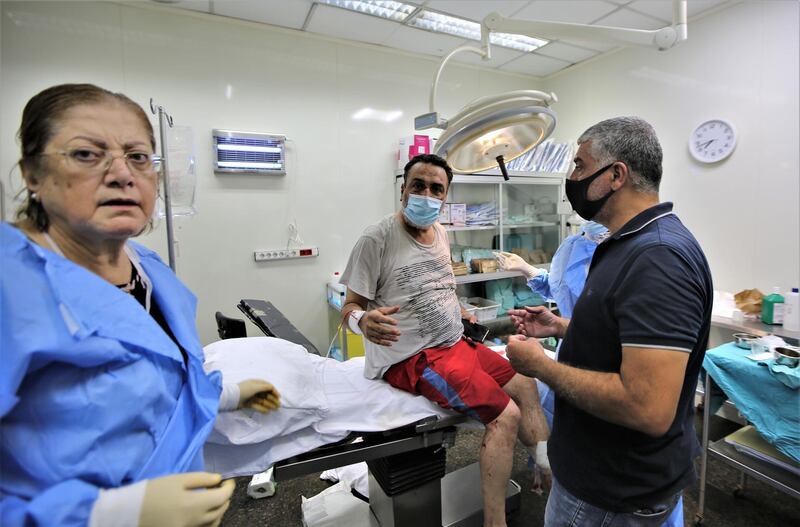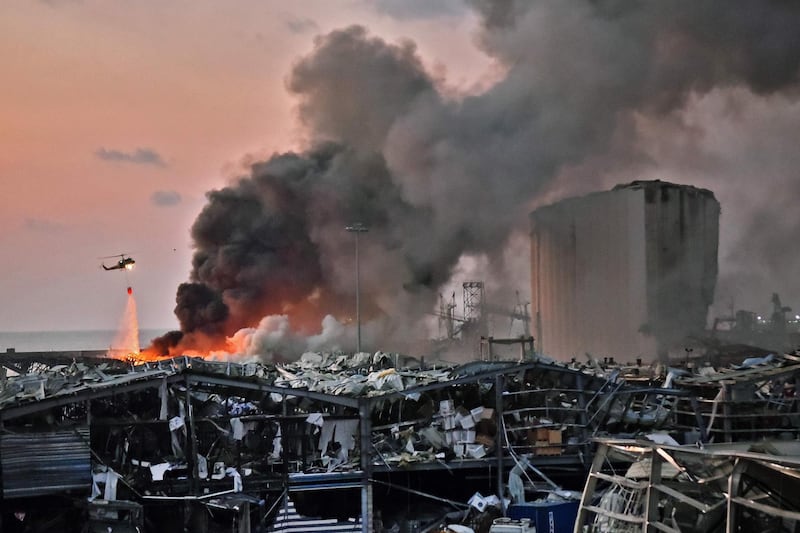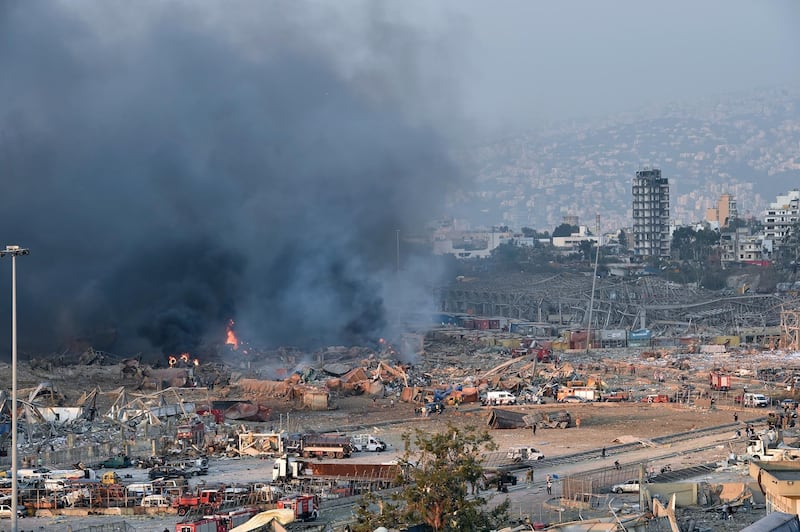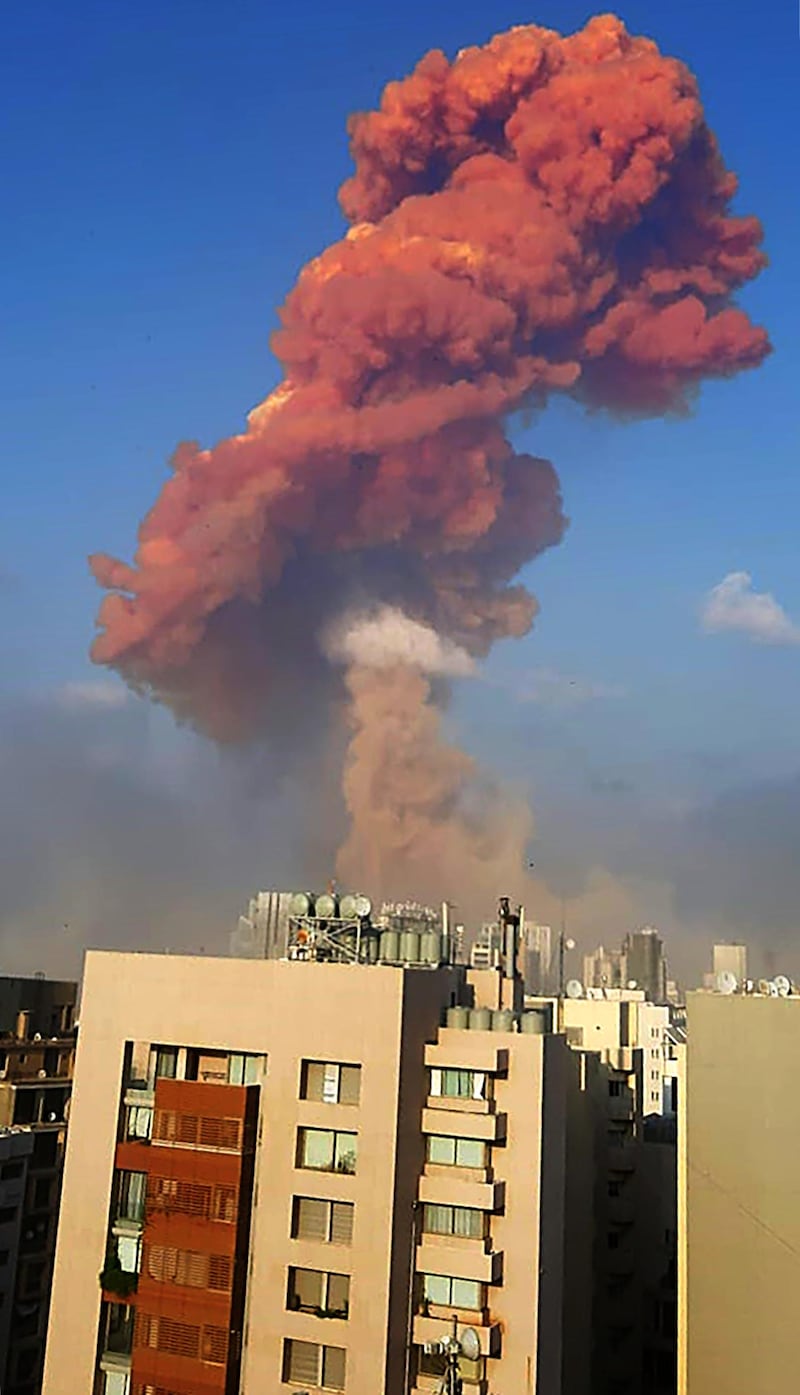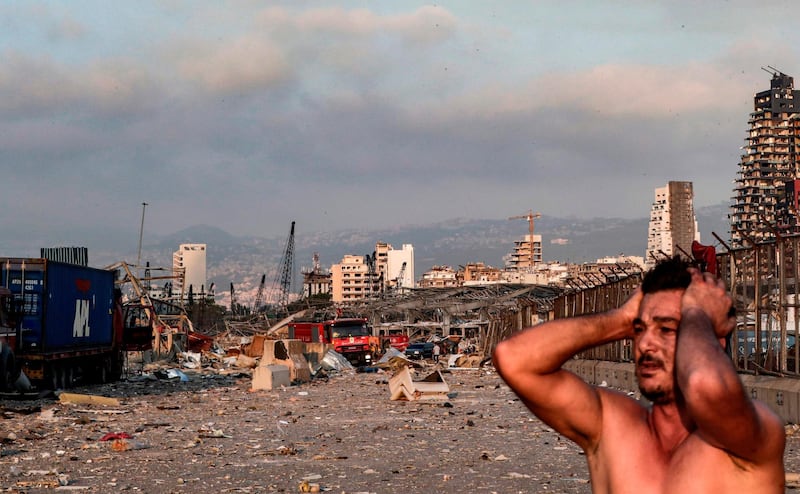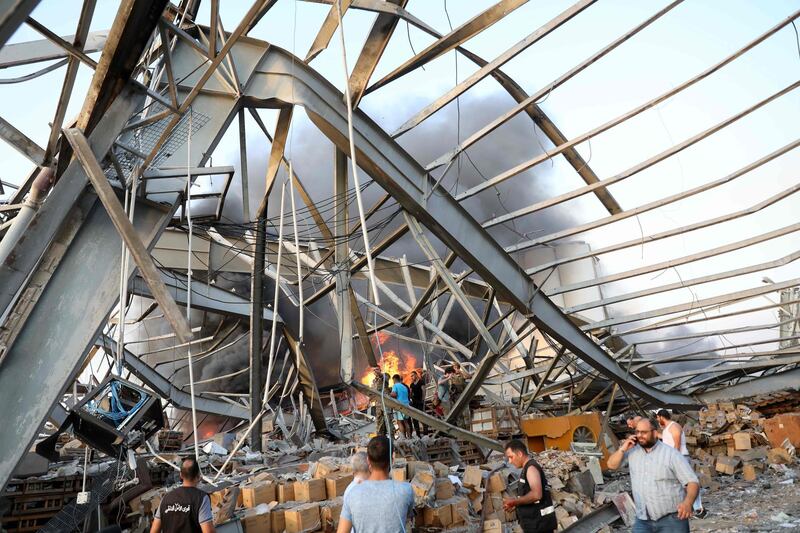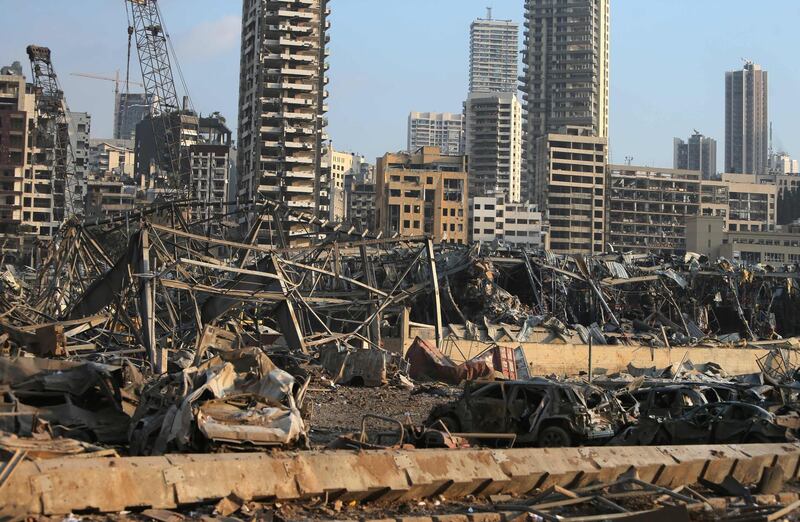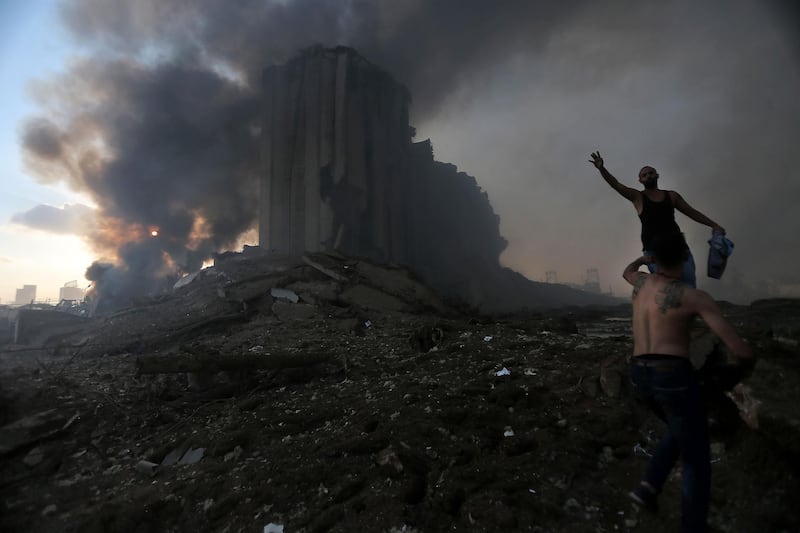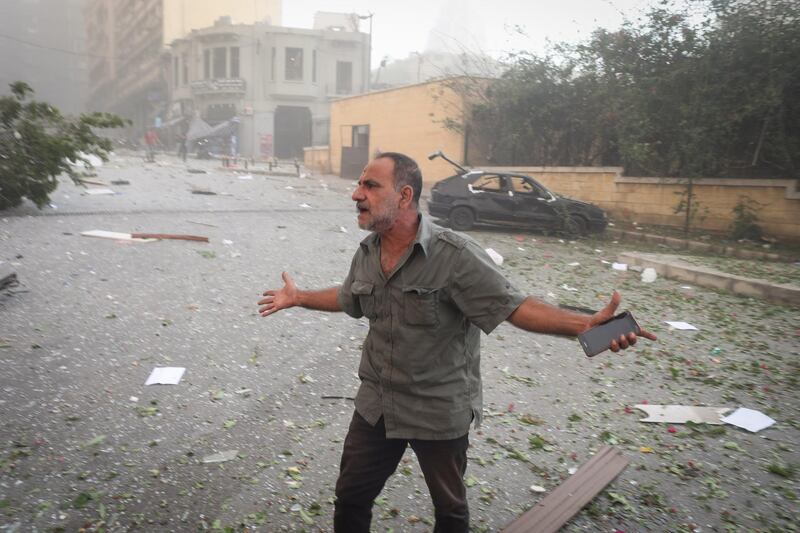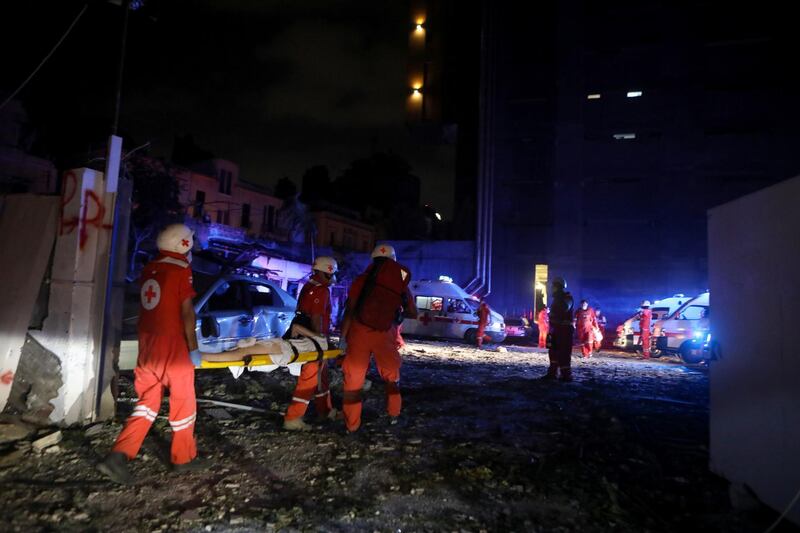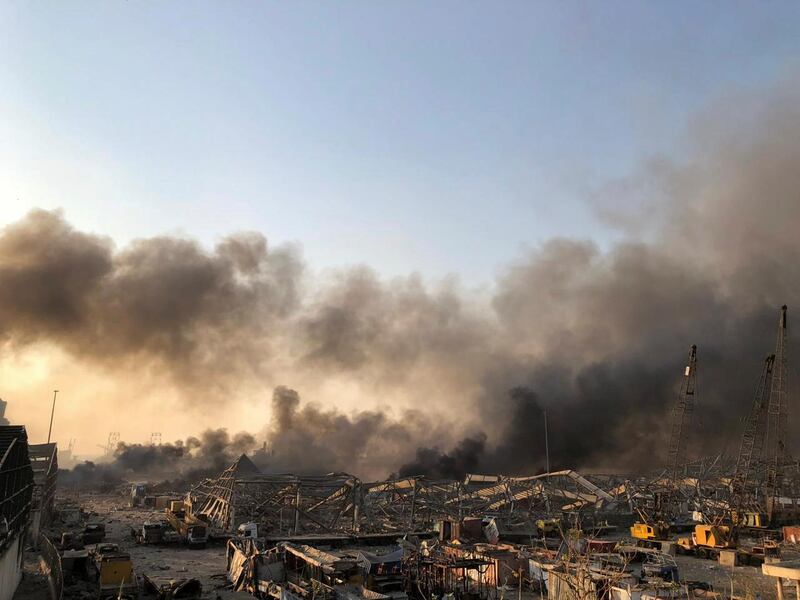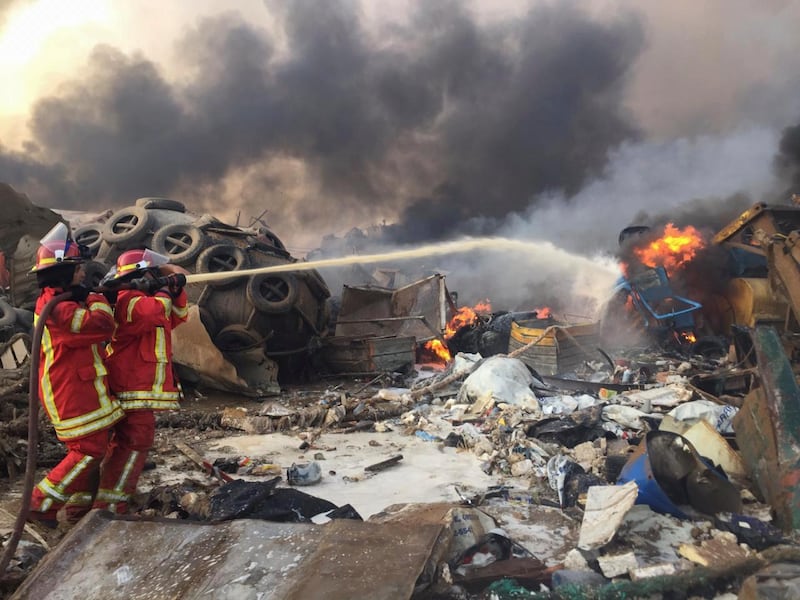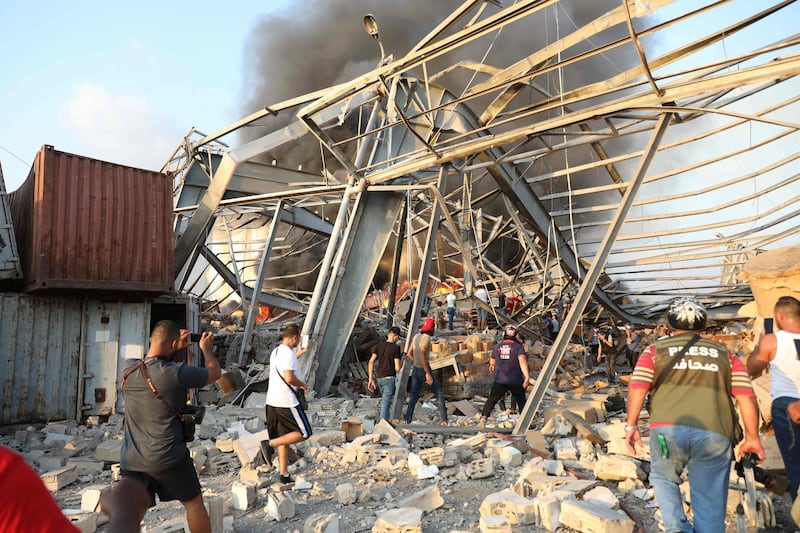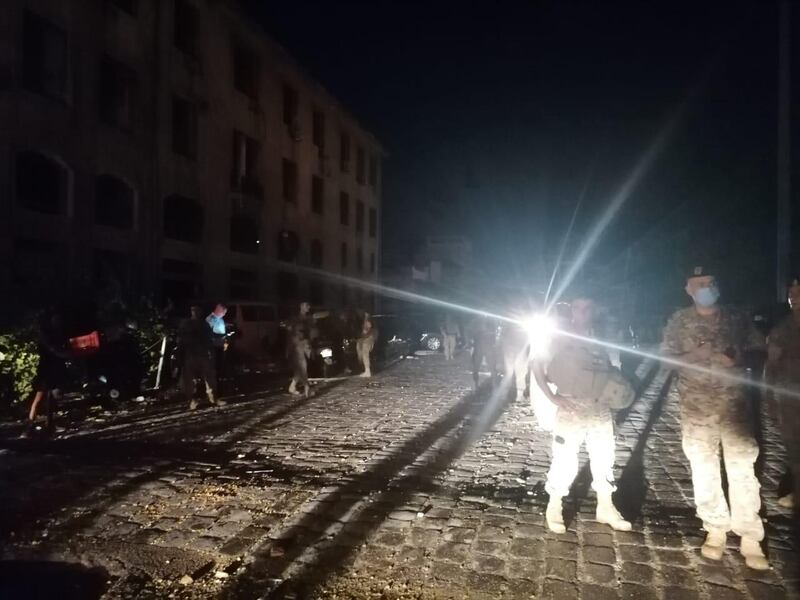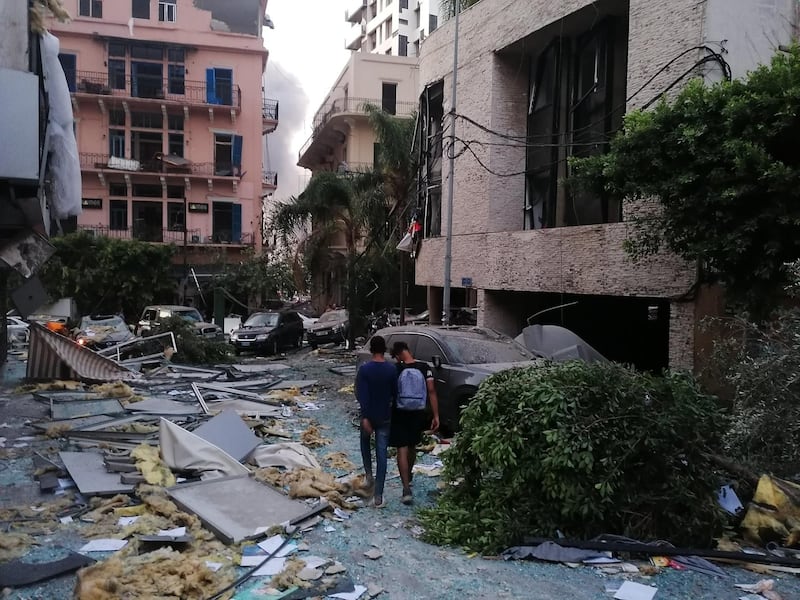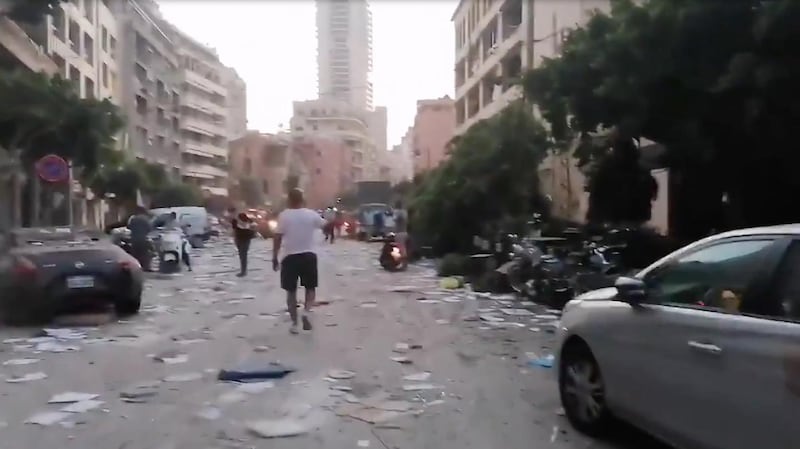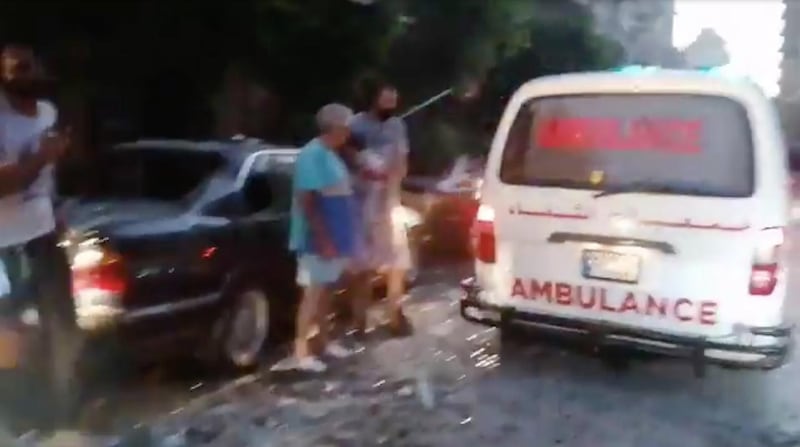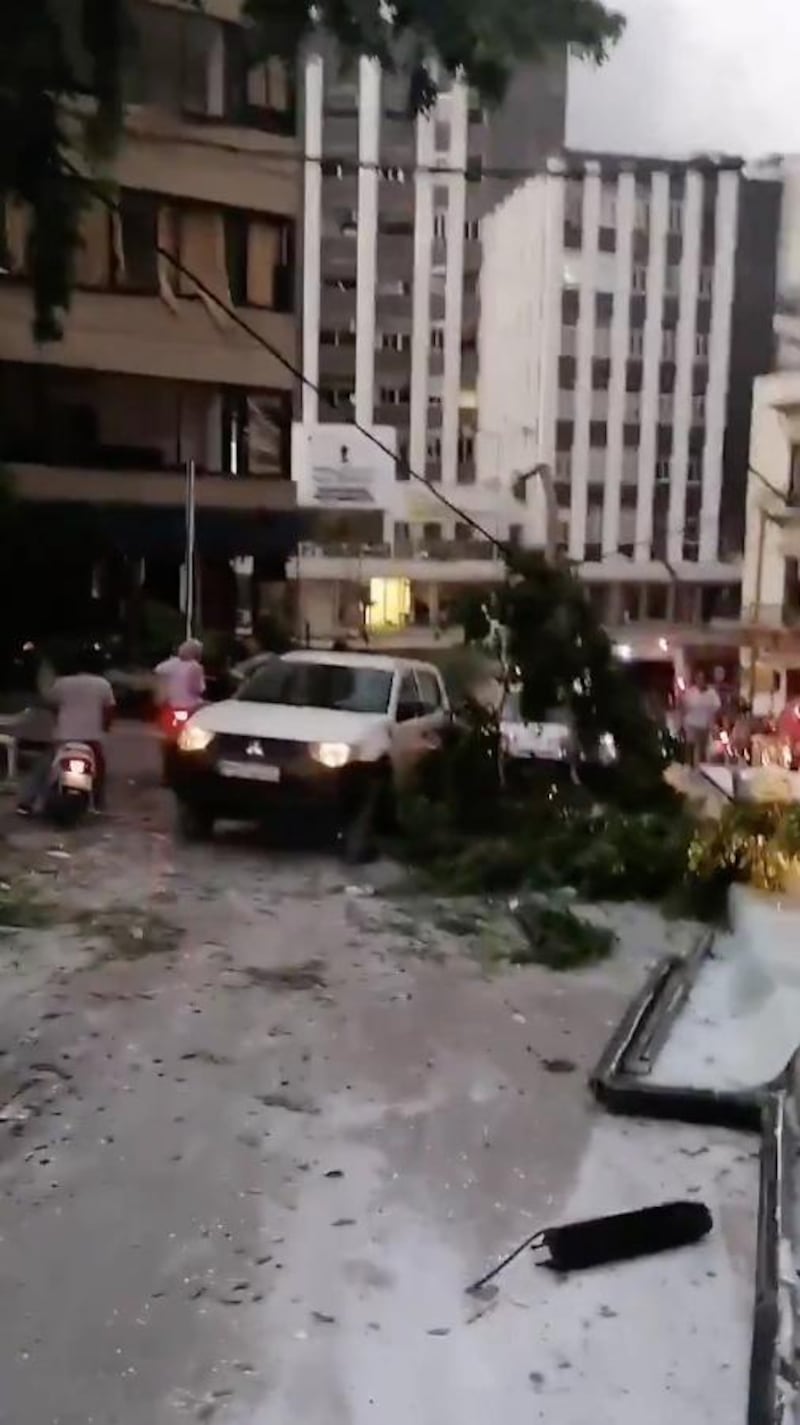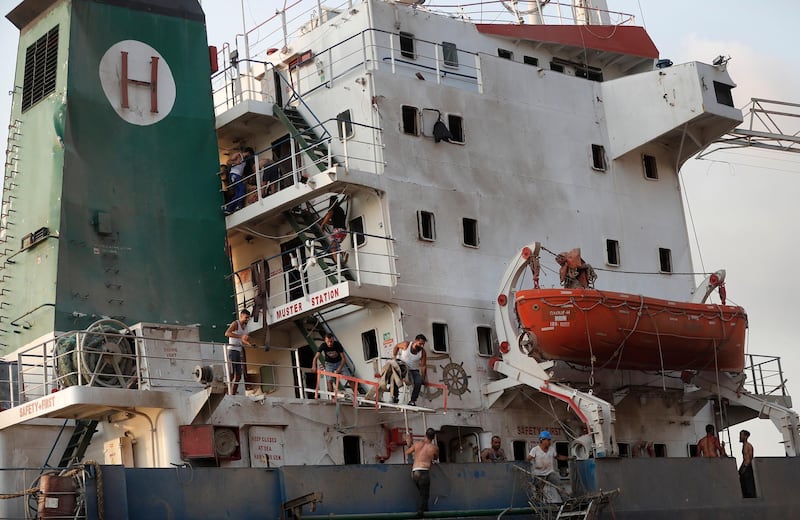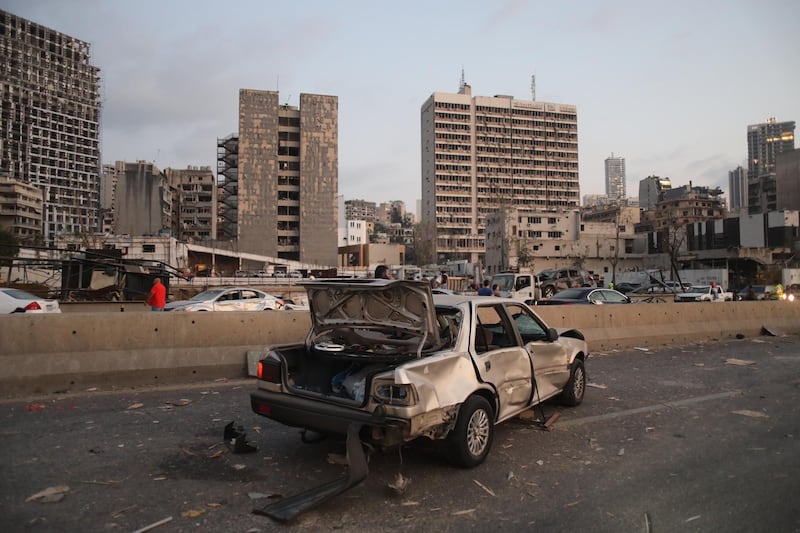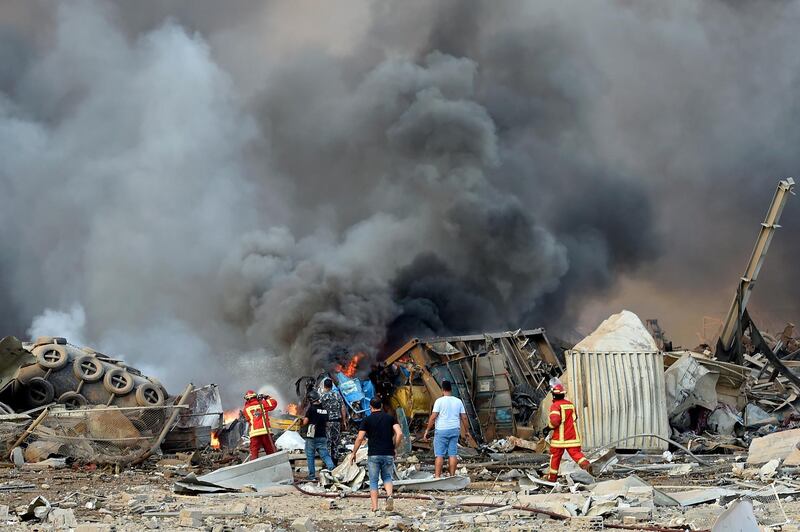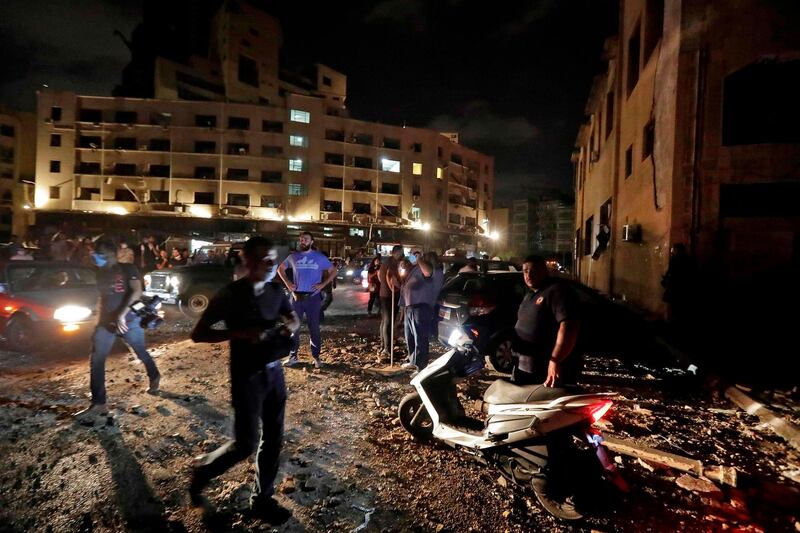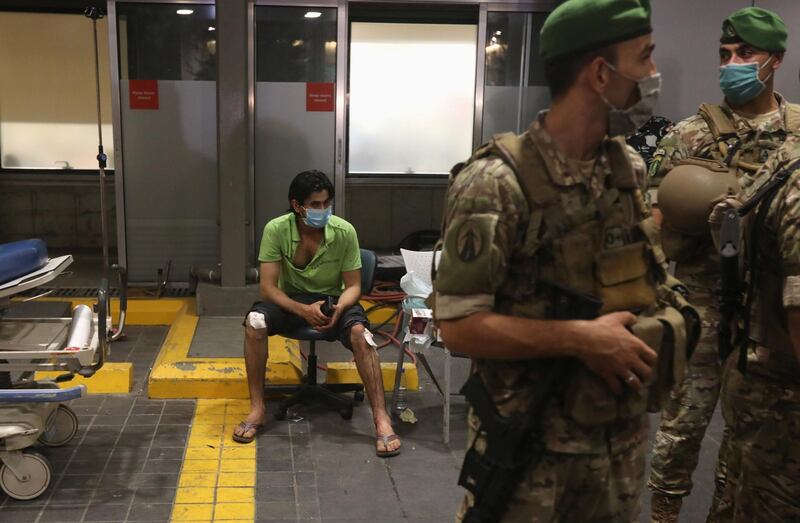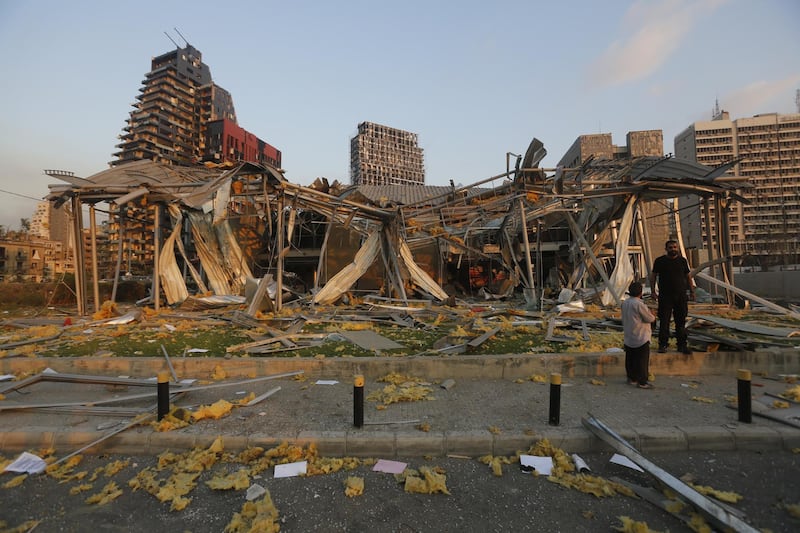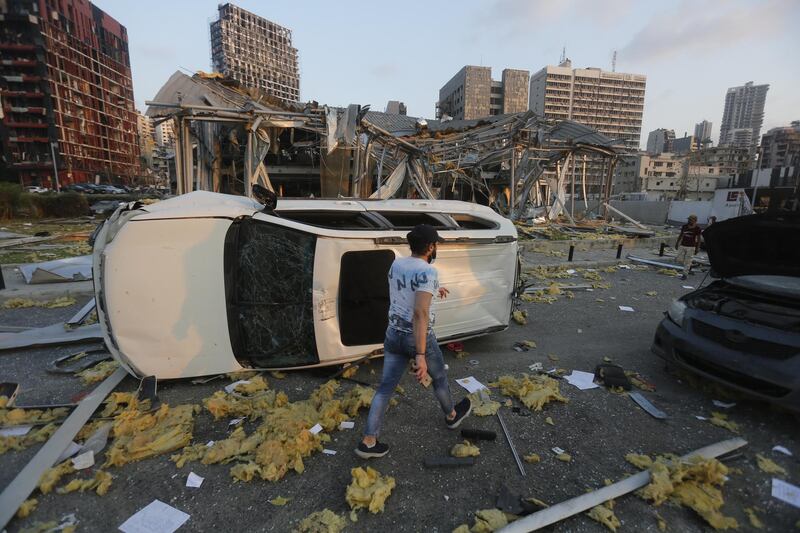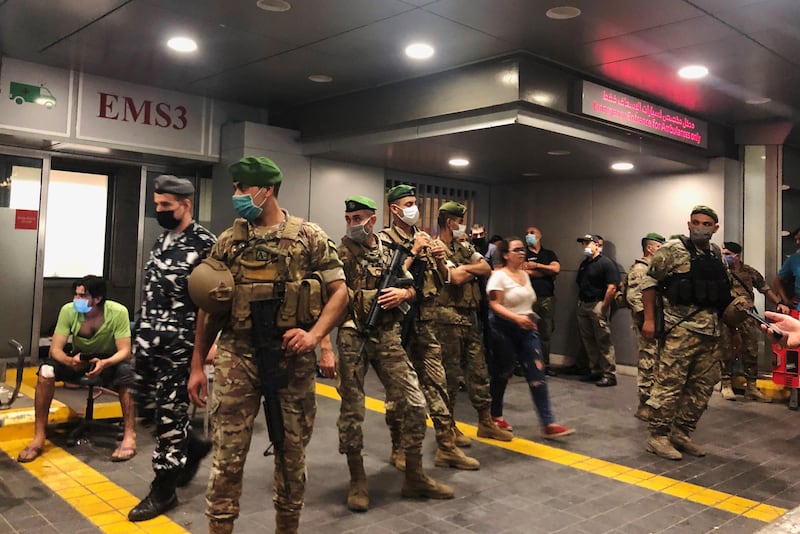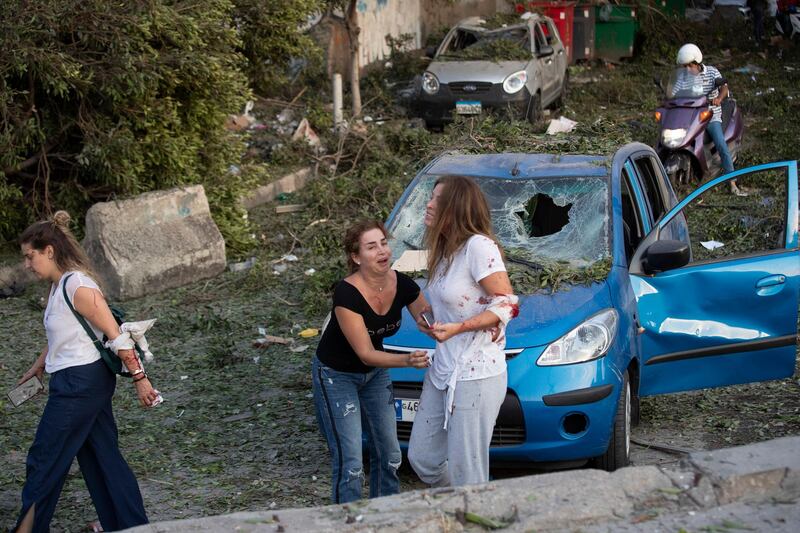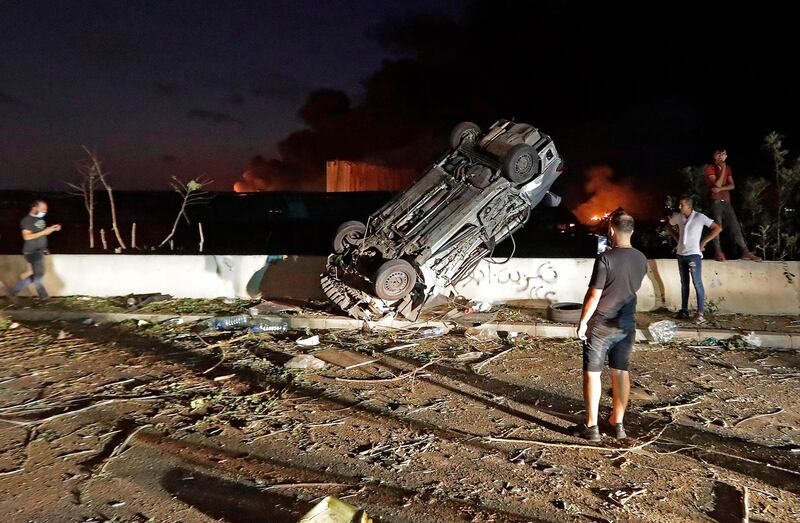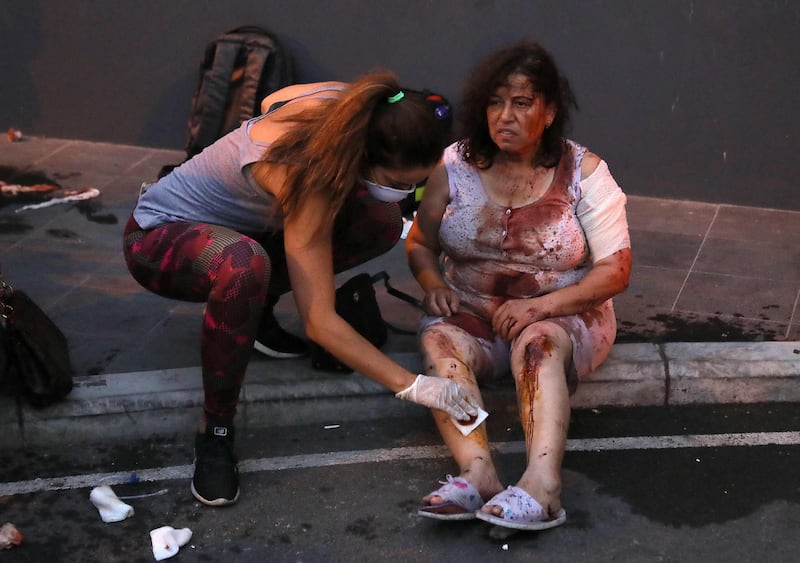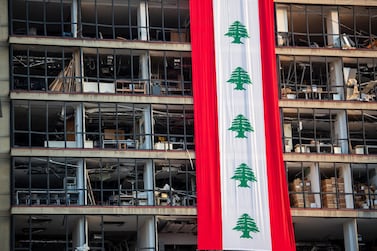As the haze from the chemical blast moved through Beirut’s streets on Tuesday and military helicopters battled fires at the port, medics used their personal cars as makeshift ambulances.
Doctors and nurses immediately rallied to help residents of the Lebanese capital as hospitals already struggling with the coronavirus outbreak filled up and quickly became overwhelmed.
Medical centres across the city filled beyond capacity, forcing doctors to plead for blood supplies and generators to ensure their lights would stay on so they could treat the nearly 4,000 wounded.
At least 135 people were killed in the explosion that Lebanese security officials said was caused by 2,700 tonnes of confiscated ammonium nitrate catching light.
Witness describes moment of Beirut blasts
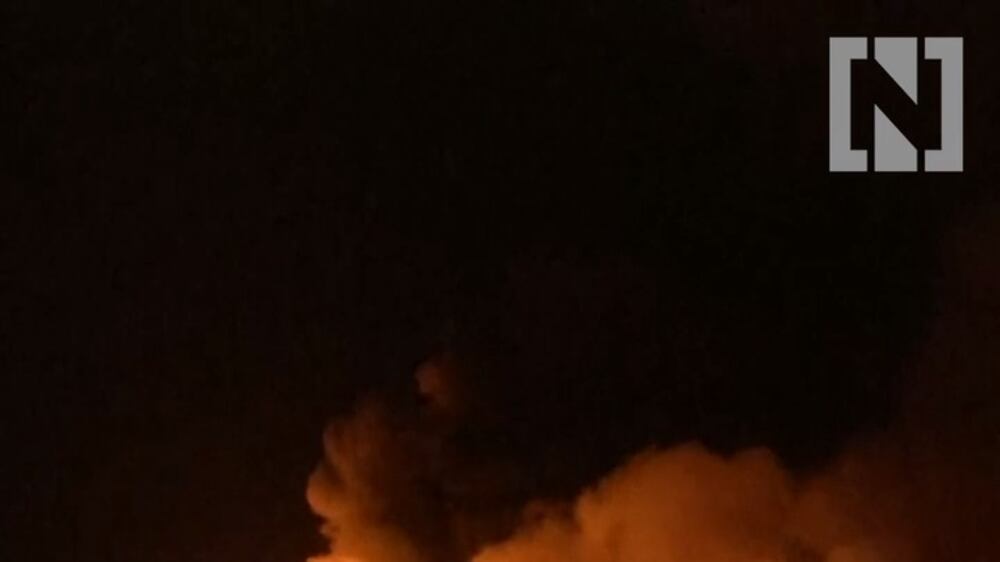
The fallout was a scene of carnage. There were dazed people covered in blood, staggering or standing motionless on streets strewn with glass and mortar.
Distraught men carried the limp body of an unconscious or possibly dead woman, and a man with a bandage-wrapped head had his face half hidden with blood.
Motorcycles and army vehicles wove through debris-covered streets to rescue and ferry the wounded to hospitals, while small clusters of people carried others on stretchers.
Hospitals became centres of grieving.
The scene around the American University of Beirut Medical Centre was one of trauma.
Victims lined the pavements next to relatives. Some were crying in pain, others for the loss of their loved ones.
At the entrance, an inconsolable man leaned against the wall, staring at the pavement.
His brother-in-law was instantly killed when the mushroom cloud rose into the sky, destroying buildings and smashing windows for kilometres, including his office opposite Beirut port.
“He was still at his office working and we received a call from his colleague that Ayman got injured in the explosion," the relative said.
"At first we did not know how critical it was but later on when we gathered up at the emergency entrance of the hospital, we were told that he succumbed to a critical injury in his head."
Others tried to save their relatives with more success.
Harachuhee Kuyumegian, 80, lived in a neighbourhood next to the port where the explosion took place.
Her son-in-law said his sister found Ms Kuyumegian covered in blood and critically injured.
He drove to the elderly woman’s house and rushed her to hospital in a bid to save her life.
“We put her on a chair and rushed her down the stairs and she was crying in pain," he said. "We rushed her in my car to the hospital."
The son-in-law said the last update he received said she was stable.
Resident doctors in the emergency ward at the American University of Beirut Medical Centre said more than 400 injured were taken there.
Those who could wait until the next day for an operation were taken to ordinary rooms.
The response became so large that the chemists' union asked all pharmacies to open and treat those with light injuries, freeing up space for the more critical cases at hospitals.
One physician, Dr Eid Azar of St George Hospital, said that the scene at his centre, the oldest in Lebanon, was chaos.
Another medical centre close to the port had to be evacuated as it was partly destroyed and beyond functioning.
Others reported cancer patients and newborn babies being shaken by the blast and covered in glass.
Some ambulances were filled with more than three victims because of the sheer volume of injured.
Many of those injured were transferred to hospitals outside of the capital, in the Mount Lebanon area and the city of Sidon to the south.
The Red Cross’s call for blood donations at hospitals to help across the capital was met with thousands of volunteers, an employee said.
Red Cross departments across Lebanon, from Tripoli to Sidon to Mount Lebanon, sent their ambulances to Beirut to help with the rescue and movement of patients.
It was a Dunkirk-like moment offering a flicker of hope, one that a country racked by economic and health woes and now the worst disaster in its history, desperately needs.
